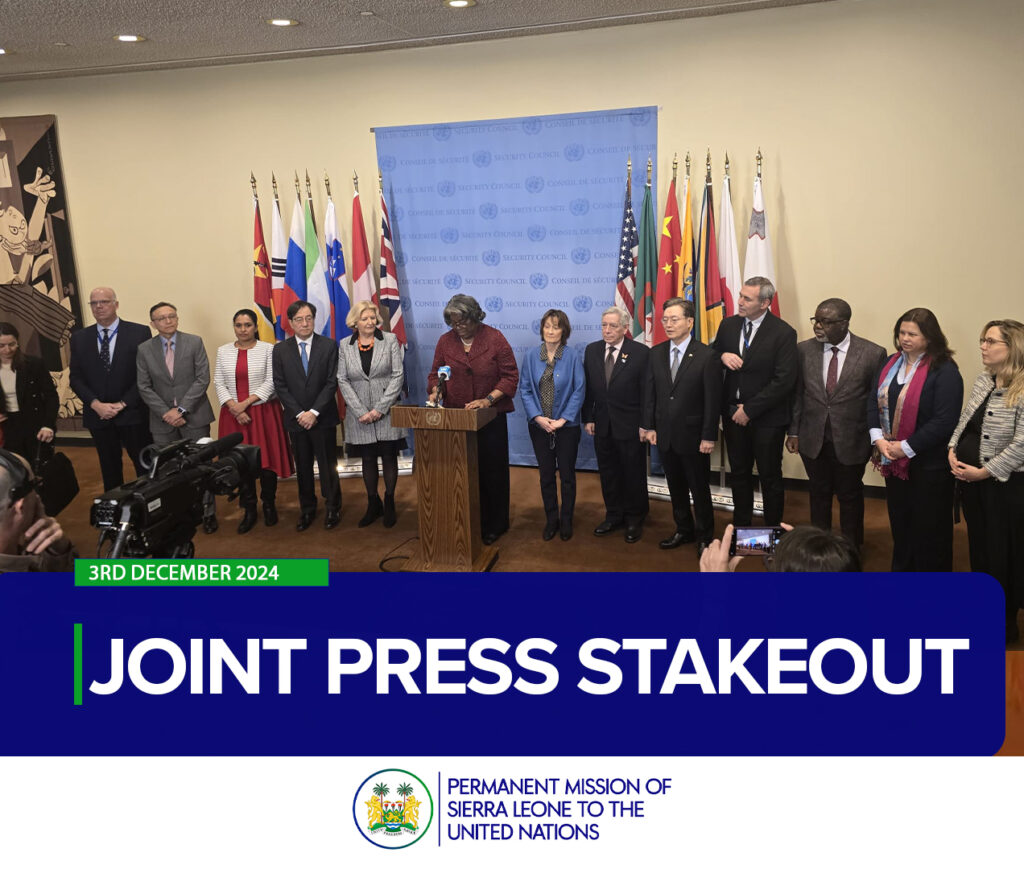Security Council meeting on WPS: Intergenerational Dialogue
We, the Security Council incoming and current signatories of the Shared Commitments on Women, Peace and Security (WPS) – Ecuador, France, Guyana, Japan, Malta, Sierra Leone, Slovenia, Switzerland, the Republic of Korea, the United States of America, the United Kingdom, Denmark, Greece, and Panama – reaffirm our commitment to the full implementation of the Women, Peace and Security agenda. We take this opportunity to underscore the importance of intergenerational dialogue and women’s full, equal, meaningful, and safe participation in all aspects of peace and security processes.
Today, as when resolution 1325 was adopted, there continue to be extremely high rates of conflict worldwide with devastating consequences. Armed conflicts disproportionately impact women and girls of all ages. They face high risks of sexual and gender-based violence, including conflict-related sexual violence. Such violations and abuses of their human rights and violations of international humanitarian law must be prevented, stopped, denounced, and punished accordingly if we are to achieve peace and security for all.
Many of the most successful peace and security processes in recent decades have leveraged the participation of women from all strata of society. However, too many peace processes still fail to meaningfully include women. We commend the African Union for its leadership in recently committing to a 30 percent quota for women’s participation in all conflict prevention and management missions, peace processes, and election observation missions led by the AU. We also welcome the Secretary General’s Common Pledge Initiative that invites mediation actors to take concrete steps to ensure women’s participation in peace processes.
We encourage other organizations and all member states to sustain and bolster their WPS efforts through concrete actions and ensure it remains at the heart of our collective approach to emerging and evolving challenges globally. only a few days after the launch of CEDAW’s General recommendation No. 40 (2024) on the equal and inclusive representation of women in decision-making systems, we look forward to finding new avenues to further acknowledging and enhancing women’s participation in prevention of conflicts and peacebuilding.
To that end, we support efforts that enable women of diverse backgrounds to be active participants in all aspects of peace and security processes; provide avenues to integrate women into the judicial and security sectors; and strengthen women’s and girls’ knowledge, skills, and capacities for meaningful participation in all aspects of political and civic life; and foster intergenerational dialogues and partnerships among women peacebuilders of all ages. Intergenerational partnerships can reinforce important gains made under resolution 1325 and subsequent resolutions by institutionalizing gender-responsive approaches that span generations, and by preventing backsliding in rights or representation.
As we look toward the future, we call on Member States to promote women’s rights and their full, equal, meaningful, and safe participation in all phases and all levels of peace and security processes. Increased investment, initiative, and implementation of WPS commitments are needed to successfully carry out the UN Security Council’s mandate to maintain international peace and security. We commit to using all tools at our disposal, including peacekeeping mandates, sanctions, accountability mechanisms, monitoring and reporting, gender-responsive humanitarian action and protection efforts, to advance the WPS agenda.



